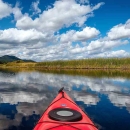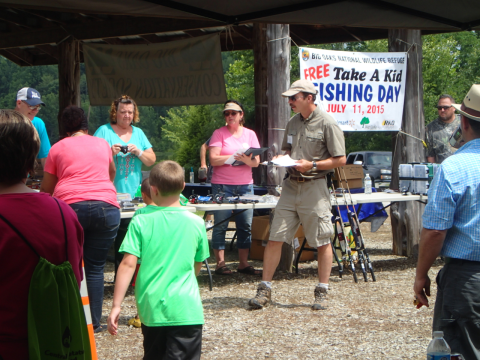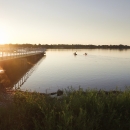Management and Conservation
Policy
The U.S. Fish and Wildlife Service updated its policy in July 2021 regarding working with Friends groups. Learn more about policy 633 FWS 1- 4.
The Friends Partnership Policy Resources include tools to help Friends (and U.S. Fish and Wildlife Service staff) interpret the revised policy. These include ethics guidelines for staff when working with Friends, an annual checklist for staff when working with Friends, and frequently asked questions (FAQs), which is updated to reflect questions as they arise.
Our Programs
Our Services
Training and Mentoring
Training and mentoring opportunities are integral parts of the Refuge Friends Group Partnership Program. The Refuge System is committed to fostering individual growth and organizational development in its Friends and volunteer partners. Refuge System leaders deeply appreciate the conservation efforts of devoted community members and know that as their capacity grows, so does their effectiveness in helping refuges meet critical conservation goals.
NCTC Friends and Volunteer Training Fee Waivers
Friends members and volunteers can apply for fee waivers on courses offered by the National Conservation Training Center in Shepherdstown, West Virginia. Waiver recipients will have tuition, meals and lodging fees paid and travel reimbursed. Learn more about the tuition waiver.
Peer-to-Peer Mentoring
The Friends Partnership Mentoring Program offers peer-to-peer coaching for refuge and fisheries Friends groups and their U.S. Fish and Wildlife Service partners to boost partnership success. Whether a group needs help to draft bylaws, apply for 501(c)(3) status or tackle a big project, mentors can offer guidance. There are two application cycles for the mentoring program each year:
- Spring Cycle: applications due May 31, with mentoring visits taking place later in the calendar year. The application can be found here.
- Fall Cycle: applications due October 31, with mentoring visits taking place the next calendar year.
If selected for mentoring, partnerships can have a pair of mentors travel to their station, at no cost to the station or Friends organization, for peer-to-peer coaching.





